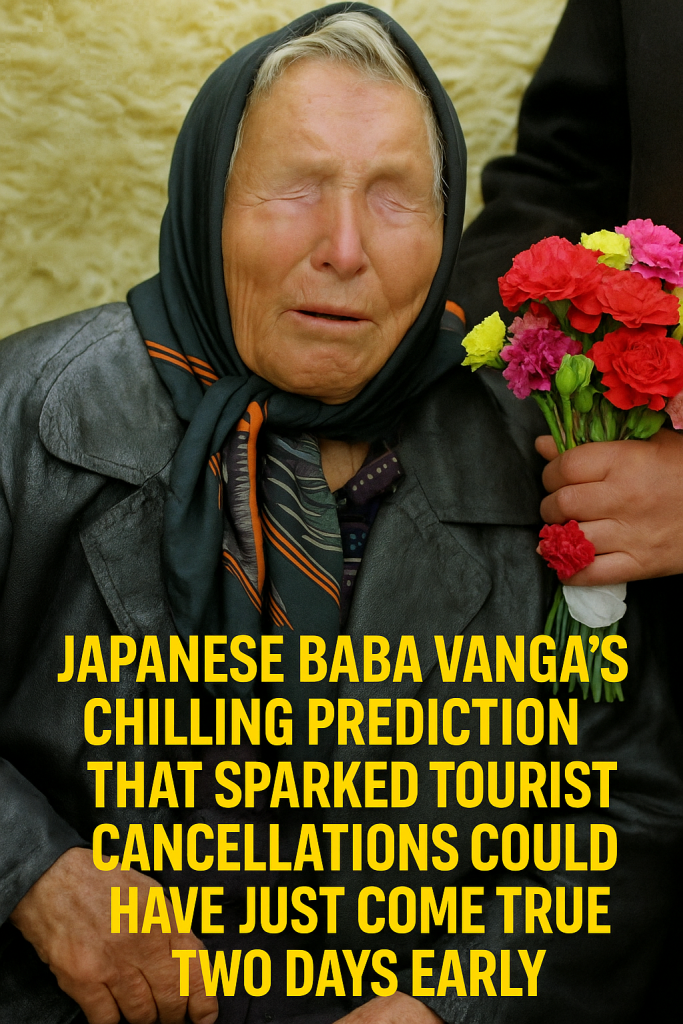Tourists planning to visit Japan this summer have been rattled by a chilling prophecy linked to a figure often likened to the Balkans’ famed seer, Baba Vanga. Dubbed the “Japanese Baba Vanga,” this mysterious figure’s ominous prediction has inadvertently sparked widespread cancellations among travelers, and now unsettling reports suggest the prophecy might be unfolding two days ahead of schedule.
The prophecy, which first circulated in early 2024, warned of an unforeseen disaster striking Japan during this season, leading to caution and apprehension amongst tourists. Social media platforms have been abuzz with images and posts referencing the Japanese seer’s dire forecast, with many vacationers citing it as a reason for cancelling or postponing their trips.
So what exactly is behind this sudden panic?
According to the circulated text and images, the prediction foresees a significant natural calamity—potentially an earthquake or a related disaster—that would greatly affect major tourist destinations across Japan. Although Japan is no stranger to seismic activity, the timing and the details hinted by this prophecy have unnerved many, especially in light of recent mild tremors reported near popular regions.
Interestingly, the unsettling turn of events appears to have come earlier than originally anticipated. The prophecy, which was expected to manifest later this month, is now claimed to have had early signs emerge just in the past 48 hours. This has only deepened the anxiety and fed speculation that the prediction holds more truth than mere superstition.
Travel agencies and local tourism boards have noted a marked dip in bookings, with some reporting declines of up to 40% for June and early July departures. City centers known for their historical landmarks, such as Kyoto and Tokyo, are experiencing a palpable downturn in visitor numbers. Hotels and resorts have also begun offering flexible cancellation policies in response to the growing unease.
Amid the swirling fears, experts urge calm and caution against taking prophecies at face value. Seismologists point out that while Japan remains one of the most earthquake-prone countries in the world, the precise prediction of such events remains beyond current scientific capability. They stress that advancements in monitoring mean early warnings, if warranted, would come from established governmental agencies rather than anonymous prophecies.
Tourism industry stakeholders acknowledge the economic impact of these fears but are hopeful that rational dialogue and transparent communication will help stabilize the situation. Campaigns emphasizing Japan’s rigorous safety standards and preparedness measures are underway, aiming to rebuild confidence among potential visitors.
For locals, the prophecy has been met with mixed reactions—ranging from skepticism to genuine concern. Some residents embrace the mystique around the Japanese Baba Vanga’s prediction as a cultural curiosity, while others express frustration over the negative influence on the economy and community morale.
Ultimately, this unfolding saga highlights how folklore and modern anxieties can intertwine in a digital age, influencing real-world behaviors with tangible outcomes. Whether the prediction will fully materialize remains to be seen, but for now, the ripple effects on Japan’s tourism sector are very real.
As travelers weigh their options, the message from authorities is clear: Stay informed via official channels, exercise standard travel caution, and remember that Japan continues to be a destination known for its resilience and hospitality in the face of any challenge.



